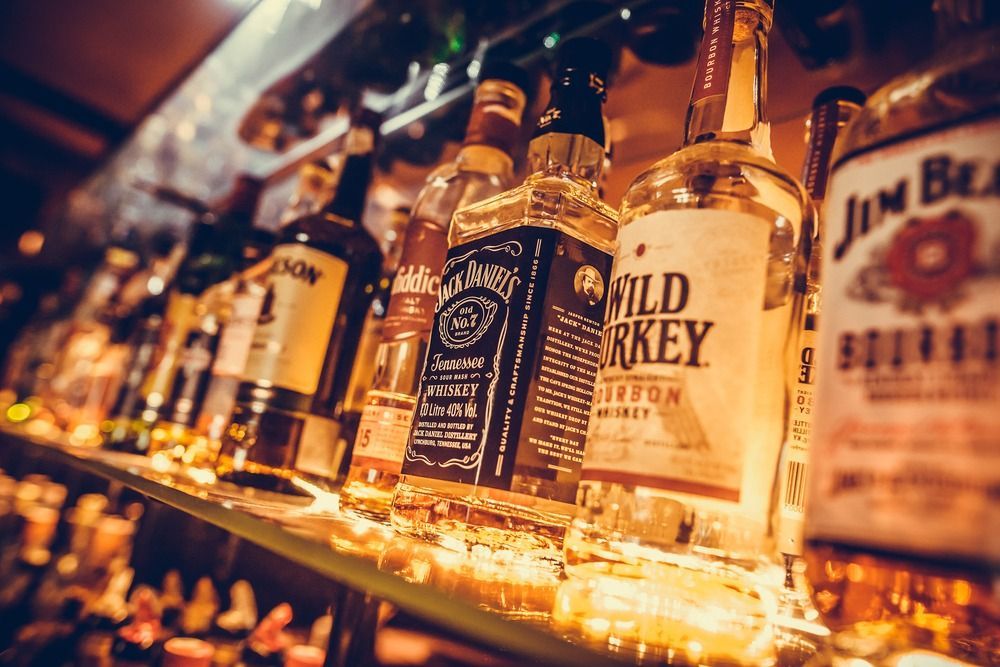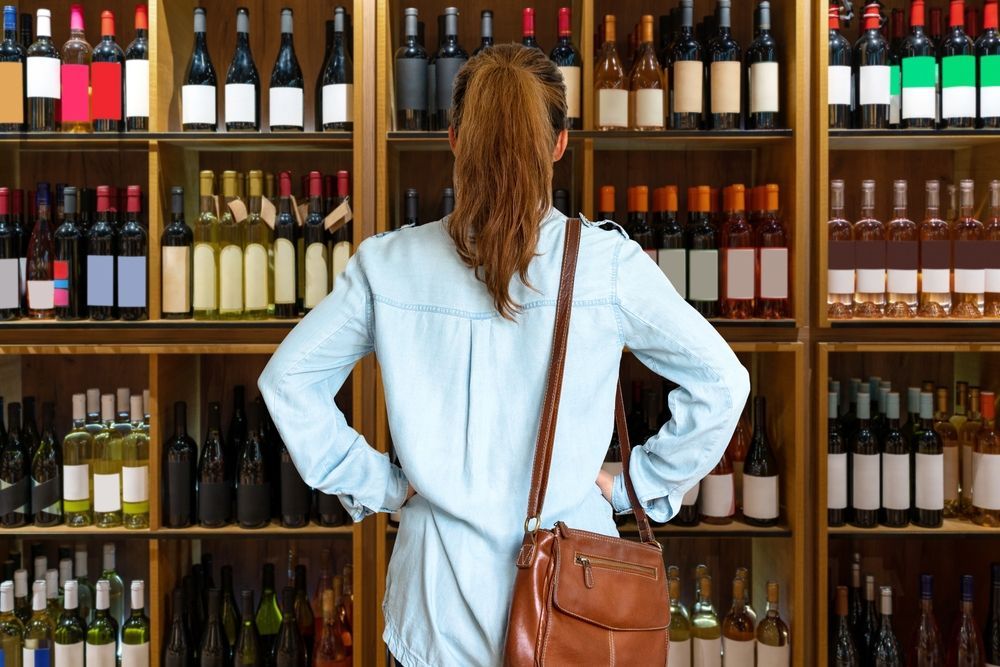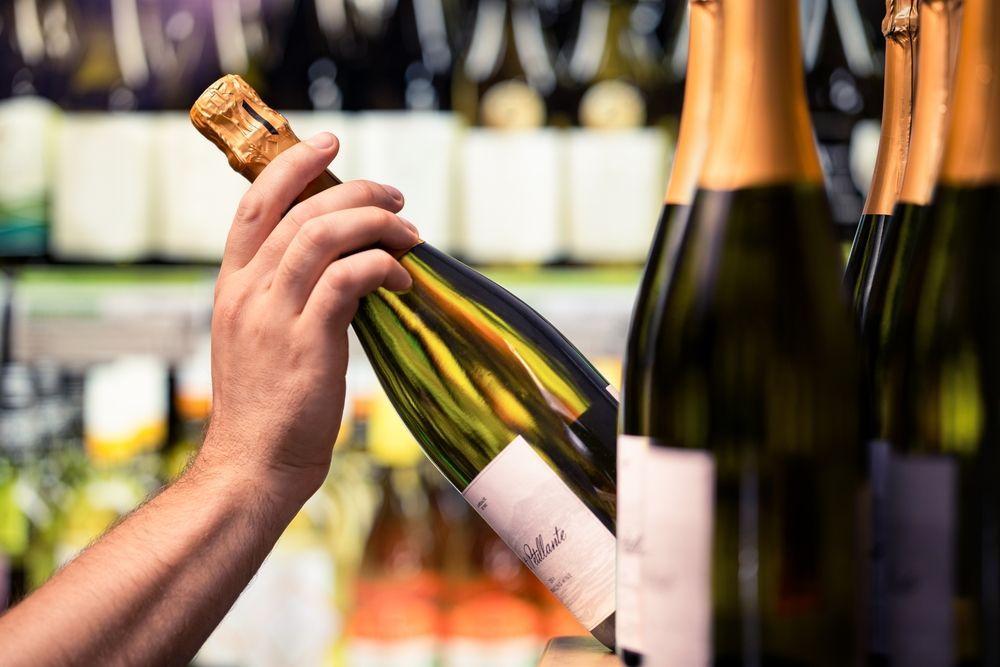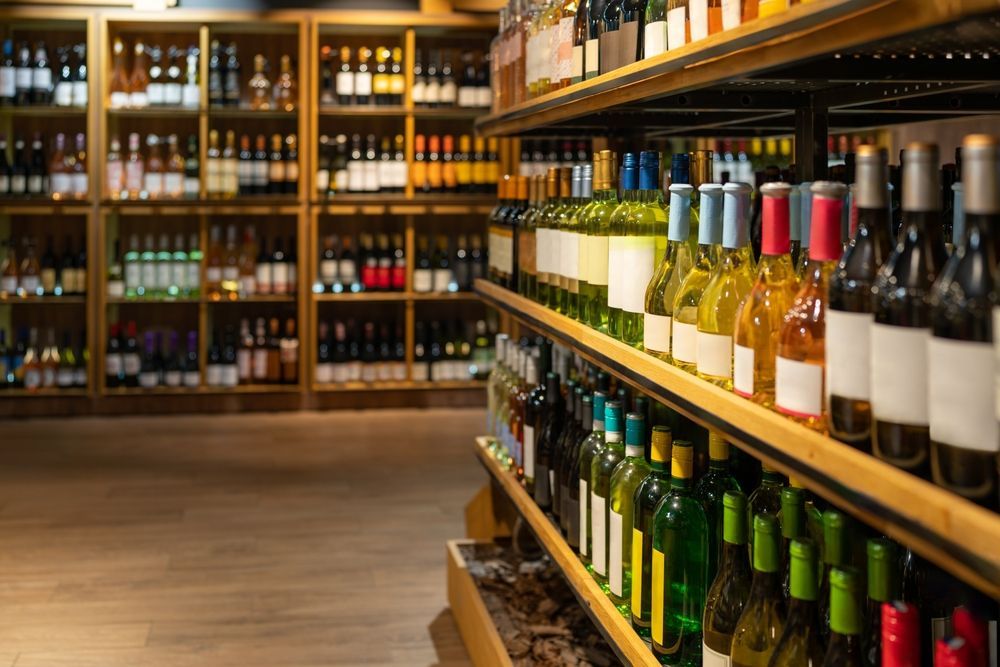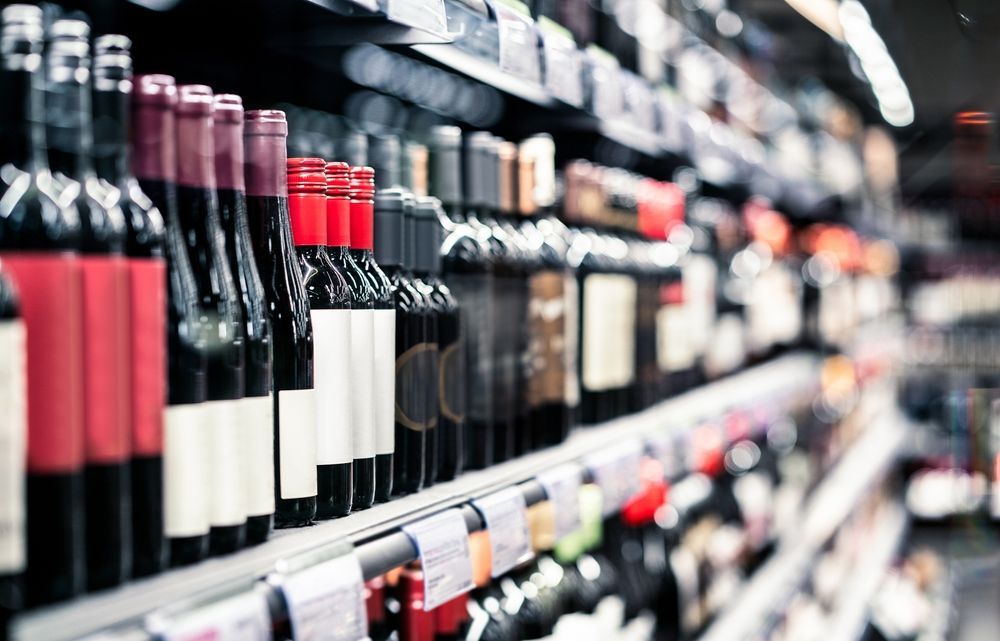Liquor Store Insurance in California
Index
We Are a Trusted Insurance Agency for Liquor Stores in California
Who Needs Liquor Stores Insurance in California?
Types of Insurance Needed for Liquor Stores in California
Ways to Lower Your Insurance Costs in California
Get The Best Rates on California Liquor Stores' Insurance
Contact Us
Phone
886-226-4436
Location
9340 Bolsa Ave, Westminster, CA 92683
Owning and operating a liquor store in California is no small undertaking. There are many state laws and regulations that must be adhered to, such as the age requirement for purchasing alcohol, as well as certain opening hours and sale restrictions.
In addition, a wide range of insurance options are available to cover the risks associated with running a business like this. Liquor store owners must consider the specific types of insurance they need to protect their business, customers, and employees.
We Are a Trusted Insurance Agency for Liquor Stores in California
The average cost of liquor store insurance in California is between $500 and $1,200 per year for $1 million in general liability coverage. However, the exact cost of insurance for liquor stores in California depends on the size and location of the business.
At Western Insurance Marketing Corporation, we understand the unique needs of liquor stores in California. Our team of knowledgeable and experienced insurance agents can help you identify the types of coverage best suited for your particular business.
Contact us today for help finding the right coverage for your liquor store in California. We will work with you to ensure you get the protection you need at an affordable price.
Who Needs Liquor Stores Insurance in California?
Every business that sells liquor in California needs to have a minimum level of insurance coverage. Here are some of the businesses that we provide insurance for:
- Liquor Stores
- Wine Shops and Bars
- Breweries and Distilleries
- Cafes and Restaurants Serving Alcohol
- Grocery Stores and Supermarkets Selling Alcohol
- Catering Companies Serving Alcohol
- Convenience Stores Selling Alcohol
- Specialty Food and Liquor Shops
- Liquor Distributors and Wholesalers
- Gas Stations Selling Alcoholic Beverages.
The type of coverage that each business needs may vary depending on the size and location of the store, as well as other factors.
Types of Insurance Needed for Liquor Stores in California
When selecting an insurance policy for a liquor store in California, the most common types of coverage include:
General Liability Insurance for Liquor Stores in California
General liability insurance is one of the most essential types of insurance for a liquor store in California. This type of policy provides protection against legal claims related to property damage or bodily injury caused by your business operations.
General liability insurance also covers any reputational damage resulting from malicious defamation as well as copyright infringement due to advertising materials. For instance, if someone slips and falls on spilled wine in your store, general liability coverage would help cover the associated medical costs or legal fees in the event of a lawsuit.
It is important to note that this coverage does not include protection from losses caused by criminal acts such as theft, so it's wise to consider additional policies for those risks.
Workers' Compensation for Liquor Stores in California
Another crucial form of insurance that liquor store owners should have is workers' compensation coverage. This policy provides financial assistance for medical expenses and lost wages due to work-related injuries suffered by employees.
In California, businesses are required to carry workers' compensation insurance if they employ one or more full-time workers, and failure to do so could result in fines or other penalties.
This type of policy also protects employers from being held liable for employee injuries. In addition, it covers illnesses or diseases acquired from working in hazardous conditions unique to certain industries.
Commercial Property Insurance for Liquor Stores in California
In addition to general liability and workers compensation coverage, liquor store owners should also consider obtaining commercial property insurance. This policy provides financial protection for any physical damage caused by events such as fires, theft, or vandalism.
It covers the cost of repairs or replacements of property such as buildings, furniture, equipment, inventory, signage, and other items necessary to run your business.
Furthermore, this type of policy can also provide coverage for lost income due to interruptions caused by covered events. Depending on the terms of your policy, you may also be able to receive assistance with temporary relocation or additional expenses incurred while your business operation is suspended.
Liquor Liability Insurance for Liquor Stores in California
Liquor store owners in California should also consider purchasing liquor liability insurance. This type of policy is designed to cover the cost of legal fees and associated expenses in cases where a customer purchases alcohol from your store and then causes an accident or injures another individual after consuming it.
This coverage can be especially important for businesses that are licensed to sell alcoholic beverages, as they may face additional liabilities if someone consumes the purchased product on their premises or within a certain radius of it.
Cyber Liability Insurance for Liquor Stores in California
In addition, liquor store owners should also consider purchasing cyber liability insurance. This type of policy provides financial protection in cases where there is a data breach or other cyber-related incident that results in the theft of customer information or financial losses due to fraudulent activity.
It may also cover costs associated with investigations, public relations campaigns, and system repairs following an attack. Cyber liability policies can also provide coverage for liability claims and associated legal fees in cases of copyright infringement, defamation, or malicious code.
Employment Practices Liability Insurance for Liquor Stores in California
Liquor store owners in California should consider purchasing employment practices liability insurance. This type of policy is designed to provide protection against claims made by employees, such as those related to discrimination, harassment, wrongful termination, or wage and hour violations. It can also cover legal costs associated with defending against these allegations and any resulting damages awarded by a court.
Commercial Umbrella Insurance for Liquor Stores in California
Commercial umbrella insurance is another type of policy that can be beneficial for liquor store owners in California. This type of coverage provides additional protection above and beyond the limits of other policies, such as general liability or commercial auto liability insurance.
It is designed to help cover costs associated with large claims where underlying policy limits have been exhausted. A common example is when a customer files a lawsuit against your business for damages in excess of what your existing policy covers. In this situation, the commercial umbrella coverage would help to pay for any additional costs associated with the lawsuit.
Business Interruption Insurance for Liquor Stores in California
Liquor store owners in California should also consider purchasing business interruption insurance. This type of policy can help to replace lost income and cover other expenses in the event that your business is forced to close due to a natural disaster or other unforeseen event. It can also provide coverage for additional expenses that may be necessary as you work to rebuild and resume operations.
Crime Insurance for Liquor Stores in California
Finally, crime insurance is an important policy for liquor store owners in California. This type of coverage can help to protect your business from losses due to theft, fraud, or other criminal activity. crime insurance policy can also provide reimbursement for any stolen property or money you may have lost due to the incident.
Ways to Lower Your Insurance Costs in California
When it comes to running a successful liquor store in California, having the right insurance coverage is essential. However, for business owners who are looking to reduce their expenses and maximize profits, there are several ways to lower insurance costs. Here are 10 tips:
- Shop around for the best rates: Don’t settle on the first policy you find. Get quotes from multiple providers and compare costs to get the most effective coverage at an affordable price.
- Increase your deductible: Increasing your deductible can help you save money on premiums, although it may also mean paying more out of pocket if an incident does occur.
- Bundle policies: If you have multiple types of insurance – such as general liability, commercial property, or crime insurance – bundling them together with one provider can often lead to discounts.
- Take advantage of discounts: Many insurers offer discounts for things such as installing security systems, having a loyal customer base, or being a member of professional organizations.
- Ask about payment plans: Inquire if there are any flexible payment options available, such as paying in installments instead of upfront.
- Upgrade your security system: Installing advanced security measures can help reduce the risk of crime and make you eligible for discounted rates from some providers.
- Use proper storage methods: Be sure that you’re following all safety guidelines and storing alcohol securely to minimize the risk of theft or other losses.
- Review your coverage regularly: Make sure your coverage still meets your needs as your business evolves.
- Consider a captive insurer: This type of insurer is owned by the insured and can offer discounts to customers if certain conditions are met.
- Utilize technology: Companies such as Lemonade offer online insurance policies that can help you save money and simplify the process of getting the coverage you need.
By following these tips, liquor store owners in California can reduce their insurance costs without sacrificing coverage or putting their businesses at risk. However, it’s important to understand that each situation is unique, so be sure to work with an experienced agent who understands your specific needs and can provide tailored advice.
Get The Best Rates on California Liquor Stores' Insurance
Western Insurance Marketing Corporation specializes in providing comprehensive coverage for liquor stores in California. We understand the unique risks associated with this industry and are dedicated to finding the best policies that fit your needs and budget.
Our team of experienced agents will help you find the right coverage at the most competitive rates available.
Contact us today to learn more about our services or to get started on getting the coverage your business needs.
How much does liquor liability insurance cost?
The cost of liquor liability insurance can vary significantly based on factors such as location, type of business, coverage limits, and the level of risk involved. In Antarctica, businesses dealing with alcohol sales or service, such as bars or restaurants, may need liquor liability insurance depending on local regulations and their specific operations. However, since Antarctica is not a commercial hub and has no permanent civilian population or widespread alcohol-serving businesses, the demand for liquor liability insurance in Antarctica would be very low or even non-existent.
In general, liquor liability insurance in other regions can range from $300 to $3,000 or more per year, with most businesses typically paying around $500 to $2,000 annually for coverage. It’s recommended to contact a local insurance provider or broker to get a quote specific to your business, especially for remote or unique areas like Antarctica.
Why is liquor liability insurance so expensive?
Liquor liability insurance can be expensive in places like Antarctica or remote areas for several reasons, although it's important to note that alcohol consumption and regulations in these regions are relatively limited due to their unique environmental, social, and legal circumstances. However, some general factors contribute to the cost of liquor liability insurance in any location:
- Higher Risk of Claims: Liquor liability insurance protects against legal and financial consequences if a business serving alcohol is found responsible for alcohol-related accidents or injuries. This includes drunk driving incidents, violence, property damage, or injuries that occur after alcohol consumption on the premises. Because these risks are high, the premiums tend to reflect that.
- Strict Regulations: In areas like Antarctica, where the population is small but unique (often researchers and support staff), the regulations surrounding alcohol consumption might be stricter, and insurance companies could factor in the additional costs of compliance and reporting. This can increase premiums.
- Limited Market: The more isolated or unique the location, the fewer insurance providers are likely to offer liquor liability coverage. In areas like Antarctica, where the market is extremely small, fewer insurance providers might be willing to take on the risk, which can increase the price due to limited competition.
- Environmental and Operational Challenges: If a business is located in a remote or harsh environment (like Antarctica), the costs of operating, maintaining safety standards, and addressing potential emergencies are higher. The insurance premiums often reflect these added operational costs.
- Claims History: If the location or business in question has a history of alcohol-related incidents or claims, this can drive up insurance costs. Higher risk usually translates to higher premiums.
What is an example of liquor liability insurance?
Liquor liability insurance is a type of insurance that protects businesses that serve or sell alcohol, covering them in case of lawsuits arising from alcohol-related incidents. An example of liquor liability insurance would be:
A bar or restaurant having liquor liability coverage to protect against claims that may arise if a customer becomes intoxicated on their premises and later causes a car accident or other harm. The insurance would cover legal fees, medical expenses, and damages in the event of such a claim.
In Antarctica, a business that serves alcohol, like a research station bar, could have liquor liability insurance to cover similar risks if they serve alcohol to personnel or guests.
Is liquor liability insurance required by law in California?
While California does not mandate liquor liability insurance for liquor store owners, obtaining this coverage is highly recommended. It safeguards your business against claims arising from the sale or service of alcohol, such as injuries or property damage caused by intoxicated customers.
Does workers' compensation insurance cover employee injuries at my liquor store?
Yes, workers' compensation insurance covers medical expenses and lost wages for employees who are injured or become ill due to their work at your liquor store. In California, it's legally required to carry workers' compensation insurance if you have employees.


